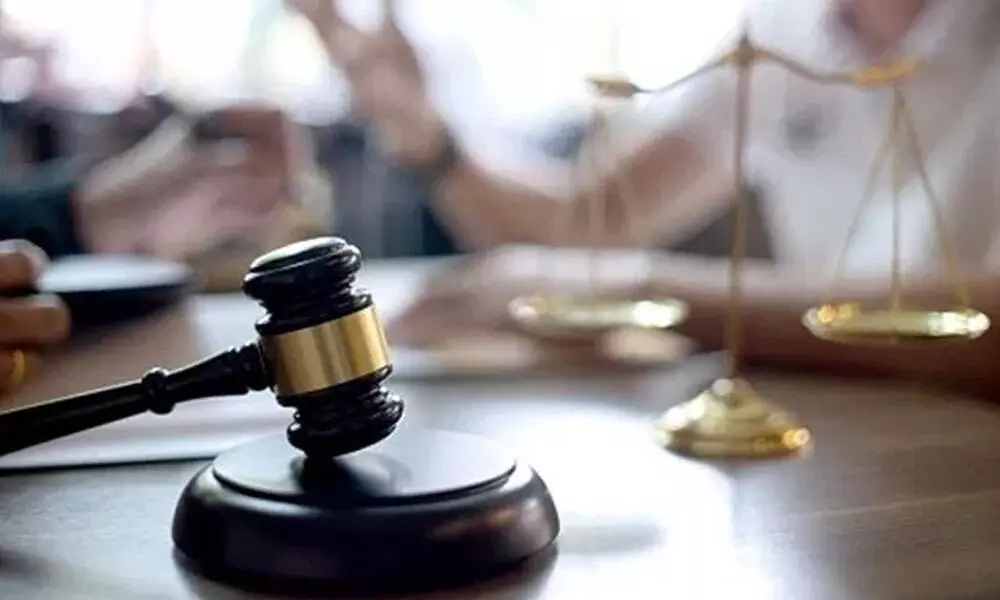Live
- AIADMK's big meet discusses 2026 polls, prospective alliances
- BJP questions Congress-Shiv Sena (UBT) alliance over Aaditya Thackeray's Savarkar-Nehru remark
- Maha Oppn to boycott customary CM tea meet, cites rising farmers' distress, atrocities against Dalits
- Mikheil Kavelashvili is new Georgian President
- He makes things look easy: Smith on 241-run partnership with Head
- Decline in TB cases & deaths in India ‘remarkable’, shows ‘political commitment’, says former WHO Director
- PKL 11: Delhi dedicates win over Haryana to ‘junior express’
- Cyclone kills 14 in French territory Mayotte
- 3rd Test: Head, Smith centuries flatten India on Day 2
- AAP Announces Final Candidate List For 2025 Delhi Assembly Elections, Kejriwal To Contest From New Delhi
Just In
Rakhi for Bail: Supreme Court says changing molester into brother unacceptable


Rakhi for Bail: Supreme Court says changing molester into brother unacceptable (Photo/IANS)
The Supreme Court on Thursday said setting the tying of a rakhi as a condition for bail
New Delhi: The Supreme Court on Thursday said setting the tying of a rakhi as a condition for bail, and transforming a molester into a brother by a judicial mandate is not unacceptable as it has the effect of diluting and eroding the offence of sexual harassment.
A bench of Justices A.M. Khanwilkar and S. Ravindra Bhat said the law criminalises outraging the modesty of a woman, as it criticised the July 30 order by the Madhya Pradesh High Court, where a man accused of molestation was asked to get a 'rakhi' tied on him by the victim as a condition for bail.
"Granting bail, subject to such conditions, renders the court susceptible to the charge of re-negotiating and mediating justice between confronting parties in a criminal offence and perpetuating gender stereotypes," the bench said in its 24-page order, setting aside the bail condition in the High Court order.
Noting that gender violence is most often unseen and is shrouded in a culture of silence, the bench said: "The causes and factors of violence against women include entrenched unequal power equations between men and women that foster violence and its acceptability, aggravated by cultural and social norms, economic dependence, poverty and alcohol consumption, etc."
The top court said judges can play a significant role in ridding the justice system of harmful stereotypes. "They have an important responsibility to base their decisions on law and facts in evidence, and not engage in gender stereotyping," it noted.
The bench also added the judges should identify gender stereotyping, and identify how the application, enforcement or perpetuation of these stereotypes discriminates against women or denies them equal access to justice. "Stereotyping might compromise the impartiality of a judge's decision," it observed.
The bench said men, perhaps more than women, have a duty and role to play in averting and combating violence against women.
Noting Attorney General K.K. Venugopal had suggested steps that should be taken to sensitise all stakeholders, especially courts, while dealing with offences against women, the bench said: "On gender equality and gender sensitisation, the Attorney General argued that to achieve the goal of gender justice, it is imperative that judicial officers, judges, and members of the bar are made aware of gender prejudices that hinder justice."
The top court said if judges falter, especially in gender related crimes, they imperil fairness and inflict great cruelty in the casual blindness to the despair of the survivors as it passed a slew of direction on the aspect of gender sensitisation in the legal fraternity.
"As far as the training and sensitisation of judges and lawyers, including public prosecutors goes, this court hereby mandates that a module on gender sensitisation be included, as part of the foundational training of every judge," it said.
The bench asked the National Judicial Academy to prepare a module for training of young judges with respect to gender sensitisation. It also asked the Bar Council of India should consider topics on sexual offences and gender sensitisation be mandatorily included in the syllabus for the All-India Bar Examination.
The top court order came on a plea was filed by advocate Aparna Bhat and eight other women lawyers against the bail condition in the High Court order.

© 2024 Hyderabad Media House Limited/The Hans India. All rights reserved. Powered by hocalwire.com






